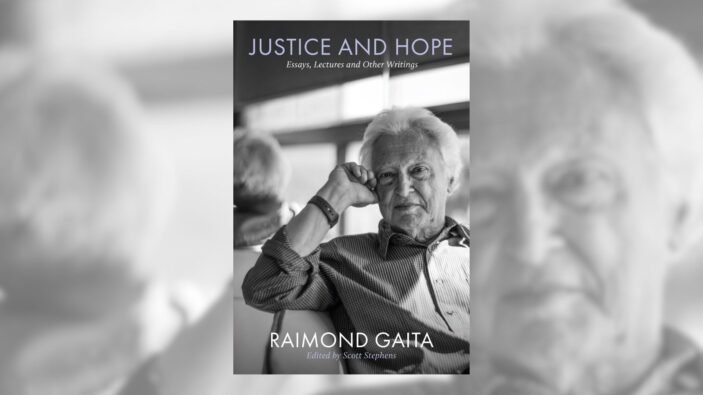
Raimond Gaita, a German-born Australian philosopher and award-winning writer, released Justice And Hope: Essays, Lectures and Other Writings in November 2023. Published through Melbourne University Press, the collection appears at a time when war and terror seem to roam our world more than ever and many questions are raised on the topics of morality, human rights and international law.
Gaita’s previous publications, Romulus My Father (1998), A Common Humanity: Thinking about Love and Truth and Justice (1999) and The Philosopher’s Dog (2002) have won him high recognition as a thinker in the field of ethics and morality as well as securing nominations and awards such as the Nettie Palmer Prize for Non-Fiction in the Victorian Premier’s Literary Award. Although many of the works featured in Justice and Hope were written years ago (some as early as 1990) the conversations they raise are very relevant today.
My recent interest in politics got me to read a few books on international affairs and history, the most recent of them being The War On The West by Douglas Murray. I must say that it was an interesting exercise to read Gaita right after Murray… Gaita philosophising his far left views and Murray, the exact opposite, far right and very much matter of a fact. Being a right-wing thinker myself, I am more of a Murray fan but I still took interest in reading Gaita’s thoughts on what he calls ‘common humanity’ and engaged in the conversations he raised on matters of right and wrong.
In the preface, Gaita defines the purpose of his book as an attempt to reach the younger generation in fear that the knowledge of the world’s great cruelties will test their understanding of what it means to share a common humanity with all the people of the earth and their faith that the world is good despite all the suffering in it. Did Gaita succeed in his task? I am not sure. And that is not because this is a very hard task to succeed in; nor it is because I personally disagree with most of the political opinions expressed in the book. But rather because of the way the messages are delivered.
I didn’t expect an essay on philosophy to be an easy read but this collection was particularly hard to understand. From the first chapter there is that feeling of Gaita going on in circles, not quite reaching a point. Is it perhaps that the topics are so complex that a simple, clear message can’t be easily expressed? Maybe. Either way if the purpose was to reach a young audience, I believe the writing should have been significantly simplified. A lot of content seems to be lost in a sea of references, sidenotes and academic language.
Some of the featured works are more successful than others. “A World in Itself: On Jacob Rosenberg’s East of Time (2011)” discusses the preciousness of each life through a fascinating example of a holocaust survivor’s tale and “Torture: Can It Ever Be a Lesser Evil? (2006)” raises a well-balanced, interesting discussion.
The editor, Scott Stephens, introduces the book describing Gaita’s writings as words that ‘has aroused love’. I rather felt a lot of judgement in Gaita’s voice, at times even anger. Gaita passes strong judgements towards particular politicians such as Donald Trump and John Howard but also towards almost all expressions of nationalism that he often labels as ‘jingoism’.
His assessment of Israel in “Israel: A Mendicant for it’s Right to Self-Determonation (2010)” is particularly harsh and largely one sided; I found it to be quite insensitive, especially as a contemporary reader following the events of last year. In many other essays Gaita describes the concept of a ‘common humanity’, the justice all people deserve no matter what and even the idea of a just war. But, he doesn’t seem to apply those ideas to those whom he is judgemental towards.
I will, therefore, have to disagree with the idea that Gaita’s writing arouse love. But, they definitely address very current matters and perhaps many of them can provoke important discussions.
Every piece of writing is essentially a work of art, whether I agree with its content or not, and art’s purpose is often exactly that: to create a discussion and to provoke various feelings and thoughts. When considered through that lens, Justice And Hope is a successful collection of writings.
![]()
![]()
![]()
![]()
![]()
THREE STARS (OUT OF FIVE)
Justice and Hope: Essays, Lectures and Other Writings by Raimond Gaita is available now from Melbourne University Publishing. Grab yourself a copy from Booktopia HERE.
